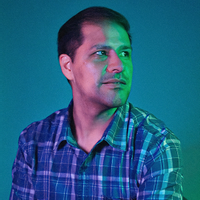When we know about the future, we normally use the present tense.
- We use the present simple for something scheduled:
We have a lesson next Monday.
The train arrives at 6.30 in the morning.
The holidays start next week.
It**'s** my birthday tomorrow.
- We can use the present continuous for plans or arrangements:
I**'m playing** football tomorrow.
They are coming to see us tomorrow.
We**'re having** a party at Christmas.
- We use will:
when we express beliefs about the future:
It will be a nice day tomorrow.
I think Brazil will win the World Cup.
I’m sure you will enjoy the film.
to mean want to or be willing to:
I hope you will come to my party.
George says he will help us.
to make offers and promises :
I**'ll** see you tomorrow.
We**'ll send** you an email.
to talk about offers and promises:
Tim will be at the meeting.
Mary will help with the cooking.
- We use** be going to**:
to talk about plans or intentions:
I**'m going to** drive to work today.
They are going to move to Manchester.
to make predictions based on evidence we can see:
Be careful!** You are going to fall**. (= I can see that you might fall.)
Look at those black clouds. I think** it’s going to rai**n. (= I can see that it will rain.)
- We use** will be with an -ing form** for something happening before and after a specific time in the future:
I**'ll be working at eight o’clock**. Can you come later?
They**'ll be waiting** for you when you arrive.
- We can use** will be with an -ing form** instead of the present continuous or be going to when we are talking about plans, arrangements and intentions:
They**'ll be coming** to see us next week.
I**'ll be driving** to work tomorrow.
Sesiones de Práctica B2B
COMPARTE ESTE ARTÍCULO Y MUESTRA LO QUE APRENDISTE




